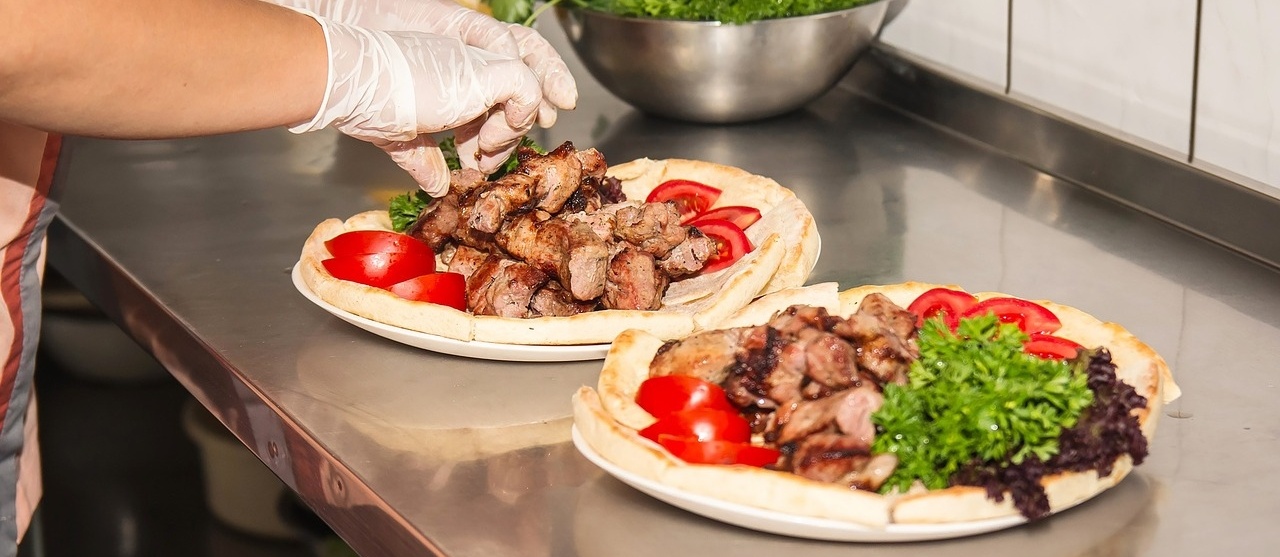How to Get Your Restaurant Reviewed by Bloggers & Critics
Bobby BrockAuthor
A mention in a local newspaper, regional publication, or restaurant blog can help any business generate buzz and gain new supporters. As the owner of a restaurant or food-related business, you should do whatever you can to get word of your venture out to as many people as possible. In fact, Toast data tells us that 63% of people expressed strong interest in new restaurant openings in their area
Being reviewed is an awesome way for your business to make a media appearance. After a food critic or blogger visits your establishment and writes about a positive experience for the first time, another will likely follow, and so on and so forth.
Ergo, if you can break into the scene by way of one favorable review, you may very well become the talk of the town.
While media coverage can be greatly beneficial, remember that a negative review can really hurt your reputation.
Getting a professional critic or blogger to review your food business will require further background research and preliminary groundwork. Find out more about which writers' and publications' reviews make sense in tandem with your food business before you reach out.
And even then, don’t directly ask for a review.
You'll want to build mutually beneficial relationships with writers and media outlets that resonate with your target market and brand. When the time is right, simply invite them over.
It can take a lot more work than you might expect to be reviewed by a well-known critic or popular blogger, but if you properly prepare your business and accurately apply your creativity when approaching a food writer, it will be well worth it in the end.
Let's go through the steps of how to get reviewed by a food blogger, food writer, or food critic at your restaurant.
Guide to Restaurant Social Media Marketing
Learn how to optimize your social media presence to showcase your brand, tell your story, attract new customers, and engage with your audience.

Step 1: Prepare & Do Your Research
Prepare
Two elements that are key to accomplishing any goals related to your food business are killer food and stellar service. Getting a blogger or critic to visit is no different.
Most reviewers will write about their overall experience, not just one aspect of it. The last thing you want is to put time and effort into having a writer review your food business, only for them to have a bad experience and share it with the world.
Before your food business is reviewed or featured in a blog, you’ll want to do the following in order to maximize customer satisfaction:
- Polish all operational processes and perfect quality control.
- Have excellent menu design, ambiance, and branding.
- Clearly write “about” and “contact us” sections of your website and social profiles.
- Make sure your location is easily visible and up-to-date on your website and social media pages.
- Provide customers with detailed information when there are any unexpected closures, delayed openings, or - if you own a food truck - last minute location changes.
Give yourself time to get everything under control, iron out any kinks, and resolve any issues before you invite any industry influencers to visit your food business.
Once you have done so you can begin to work on actually contacting writers.
Do Your Research
While you're prepping for a critic's arrival, you can do your homework.
First and foremost, you will need to understand the difference between food critics and bloggers.
Food critics usually write for newspapers or magazines and prefer to remain anonymous when visiting an establishment. They want to see what your business is like for normal customers and therefore don’t usually make their presence known. While you should do your best to recognize one if they come through your doors, don’t immediately acknowledge who they are. Treat them well - just like you would treat any patron - but don’t give them too much attention.
Remember that most food critics want to write an unbiased review and could think you are compensating for something if you try too hard to make their experience special, give them preferential treatment, or offer them anything on the house.
For serious food critics, free items or a comped bill can be considered a bribe. If they do accept any freebies, they will likely mention this in their writing, which runs the risk of their review reading like a sponsored advertisement and not an honest opinion of your food business.
Bloggers vs. Critics
In general, bloggers approach their writing with a more casual attitude.
Most bloggers aren’t on someone else’s payroll - they primarily go by their own rules rather than sticking to strict guidelines like those that food critics may be held to by their employers. However, you can conduct background research on both groups the same way.

To begin, find out who is consistently writing about food in your area. Do a Google search and see what you can find! When you come across a review that you like, jot down the author’s name along with their contact information and social media handles. If you feel like a reviewer has a similar target demographic as your food business, follow them on social media and read more of their work to get to know their style, tastes, and preferences.
Additionally, start to build relationships with writers over social networks by commenting on their posts and tagging them in yours when it’s appropriate. You want to make your food business known to writers so that when you contact them, they will have an idea of what your business is all about, or - at the very least - recognize its name.
Keep this running list of writers up-to-date and continue to interact with industry influencers on social media so that you will be prepared to reach out to a blogger, writer, or critic when the right opportunity presents itself.
Step 2: Reach Out & Build Relationships
Reaching Out to Bloggers
After you’ve familiarized yourself with the work of writers you like, you’re ready to launch your outreach campaign. The long-term goal of this campaign is to build mutually beneficial relationships that will last beyond a single review of your food business.
Think of ways that you can help writers, not just ways they can help you.
- If you read an article you think one would find interesting, share it with them on Facebook or via email.
- If you have an idea for a piece they could write, even if it has nothing to do with your business, send them an email and pitch it to them.
In a 2012 survey given to almost 700 food bloggers, less than half of the participants stated that they preferred writing restaurant reviews to other types of content. The more you think outside of the box, the more content you may be able to generate featuring your food business and the stronger the relationships you will build with a greater number of writers.
Try to develop relationships with writers so that they feel connected to you and your food business. If they can imagine themselves collaborating with you in the future, they will be more likely to take you up on an invitation to your establishment.
The best recommendation bloggers have for industry business owners hoping to see their restaurants featured online is simple - ask them to stop by and check things out. Send an email inviting them to visit your business and offer a free meal or a gift card without any stipulations or expectations.
Reaching Out to Critics
Since established food critics usually decide which places to review based on overall trends and the opinions of their publishers, it is less likely that they will respond to your invitation than it is that a blogger will, but it never hurts to invite them anyway.

For critics, offering a free meal in exchange for a review can be seen as bribery, but if you aren’t asking for anything in return, it gives them incentive to stop by your truck and try your food.
Yes, you’ll be giving away some product, but it could potentially have a higher ROI than other marketing expenditures. If you purchase an advertisement on a website, all this tells a viewer is that you were able to pay for that space.
If your food business receives a positive review on a credible blog or publication, this tells readers that the food, service, and atmosphere are exciting enough that the writer, someone whose opinion they have come to trust, recommends it. In fact, 70-80% of internet users ignore paid advertisements. An even higher number of millennials, 84%, don’t trust traditional advertising and are 247% more likely to be influenced by blogs and social media sites.
Restaurant Survey Template
Use this template to ask your guests about their experiences in your restaurant. These survey questions will give you the data you need to make informed changes and improve the overall dining experience.

The Best Method of Outreach
To increase the probability that your emails will be well received and your invitations accepted, personalize them! Address each writer by name and include individualized details based on what you learned while reading their work to show them that your business is relevant to their content and will be of interest to their readership. Explain why you’ve decided to reach out to each writer specifically and hint at the chance of further collaboration.
Take the time to write these emails yourself and let your personality shine through. All of this attention to detail will help you stand out from the crowd of mass stock emails that each reviewer likely receives everyday.
If someone doesn’t bite, don’t take it personally. Now may not be the right time in their opinion, but that doesn’t mean it won’t be in six months. Keep track of those who say no, why, and those who don’t respond, noting to follow-up and contact them again at a later date and pursue additional outreach efforts.
Step 3: Time to Get Creative!
When you let your personality and passion show in your business’s food, service, and design, your guests will be able to taste, feel, and see it, giving them a unique experience that they can’t get anywhere else.
However, it might be difficult for people who have not visited to understand this.
Being featured or reviewed in the press will help get the message out, so it is important that you do what is in your power to reach bloggers, critics, and industry influencers to clue them in.

To stand out right away, apply creativity and innovation to your approach. After you’ve gathered intel on the writers you would enjoy working with most, brainstorm ways that you can team up to promote each others’ efforts within the local food community. Ideas resulting in content that can be shared on both your business’s and their blogs’s social media channels are ideal as they exemplify the power of a symbiotic relationship lasting far beyond the first review of your restaurant. The more creative ways you can think of for a writer to feature your food business, the less work it is for them to do so, and the more likely they are to do it.
When you are ready to invite a reviewer to visit your food business, remember to be human, humble, and hospitable. When reaching out:
- address every writer by name.
- introduce yourself.
- explain your interest in working with each of them specifically.
- give them incentive.
- ask them to visit!
Creating personalized messages will take dedication and time. It may seem like a lot of effort compared to sending mass emails, especially when there is no guarantee of a review, but emails with personalized subject lines are 26% more likely to be opened, while emails with personalized bodies have a 14% higher click through rate and 10% higher conversion rate.
Getting Noticed by Critics and Bloggers
Follow these steps and you will likely see more reviews of your establishment, leading to increased exposure for your business, as well as the formation of mutually beneficial, long-term relationships that have the potential to offer you invaluable access to, insight on, and influence in the local food community.
So what are you waiting for?
Related Restaurant Resources
Is this article helpful?
DISCLAIMER: This information is provided for general informational purposes only, and publication does not constitute an endorsement. Toast does not warrant the accuracy or completeness of any information, text, graphics, links, or other items contained within this content. Toast does not guarantee you will achieve any specific results if you follow any advice herein. It may be advisable for you to consult with a professional such as a lawyer, accountant, or business advisor for advice specific to your situation.



